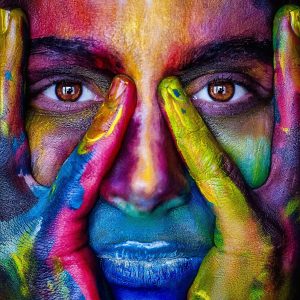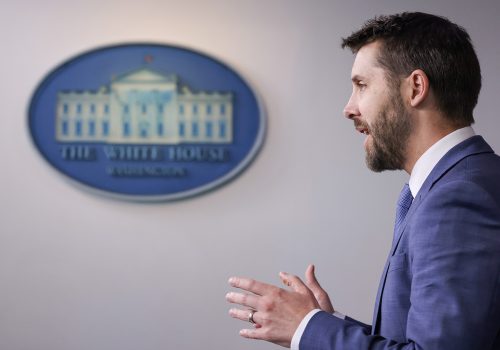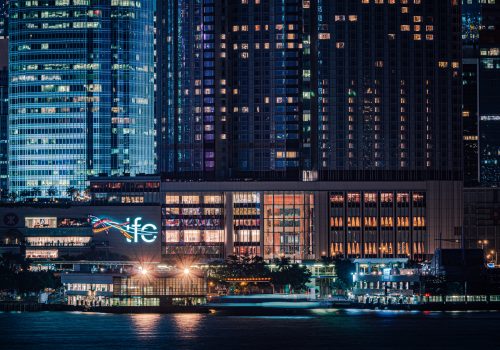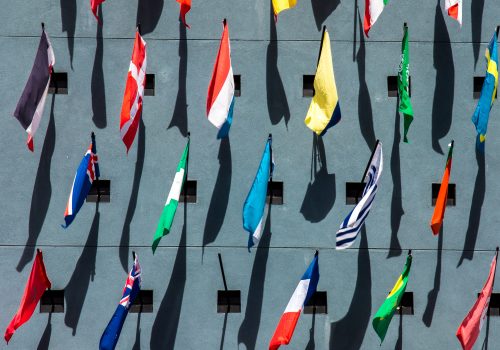Shared humanity amid times of turbulence
On 16 April 1963, Martin Luther King Jr. penned his famous “Letter from a Birmingham Jail” noting “Injustice anywhere is a threat to justice everywhere… We are caught in an escapable network of mutuality, tied in a single garment of destiny. Whatever effects one directly, affects all indirectly.”
He wrote this eloquent letter in difficult circumstances, noting “I can assure you that it would have been much shorter if I had been writing from a comfortable desk, but what else can one do when he is alone in a narrow jail cell, other than write long letters…” and in his letter calls for “Now is the time to make real the promise of democracy and transform.”
We here at the Atlantic Council GeoTech Center strongly believe that Martin Luther King Jr. was and is right. There have been — and unfortunately remain — injustices present in societies that have not been made right. Internal to the United States and more broadly around the world, we all have an obligation to do all that we can to ensure societies address these injustices and work to ensure the promise of the future is available to all without inequities.
Though the mission of the GeoTech Center is limited to new technologies and data, we would be remiss if, during these times of turbulence, that we did not acknowledge and point out that such efforts in the United States and abroad have historically been less than diverse, less than inclusive, and less than representative of societies and communities. This needs to be fixed.
For all of the talk of the risk of either biased data or biased AI efforts, systemic human biases still persist in society and these are both unfair and unjust. Human biases, be they either intentional or unintentional, have not enabled new technologies and data to be developed by diverse communities and benefit people, prosperity, and peace globally. These issues must be remedied.
To such end, we at the GeoTech Center want to amplify and give a voice to those with solutions to address these issues, be they inside the United States or globally around the world. We are here to highlight positive #ChangeAgents who can help remedy the injustices present in societies that have not been made right, because united we stand, divided we fall.
An injustice anywhere is a threat to justice everywhere.

This post is a call for those who have positive solutions to address these issues to reach out to the Center; we are here to amplify your voice. Please reach out to us. This post is also to re-commit the Center to six concrete actions during this time of turbulence that were already implicit to our mission and we wanted to make publicly explicit:
1: We must provide voice to those who are asking and providing ideas regarding how we can fix issues of injustice systemically. Specifically, if enough positive #ChangeAgents start raising these questions, ideas, and possible solutions to “what comes next” for the decades ahead — and most importantly what social institutions will allow for the plurality of human co-existence and encourage peaceful resolution (and forgiveness) of disputes — than perhaps we have a lasting chance.
2: We must build up, focused on positive solutions to ensure diversity, inclusion, and justice are cornerstone values. Specifically, the importance of focusing on being positive #ChangeAgents is essential. Giving in to hate or feeding in to those detracting from finding ways to right what historically and still needs to be fixed removes our ability to empathize with others and strive to find the common humanity in us all.
3: We must build bridges across different groups, we cannot be a house divided; this includes bridges to those who hold different views or views that challenge our own. As Abraham Lincoln once noted: “I don’t like that man, I must get to know him better.” If we only take the time to get to know people we like, than we reinforce an age-old human paradigm of “us vs. them” and miss the opportunity to try and find a merit of compassion or insight even in people we might not agree with in principle.
4: We must find ways to benefit multiple groups, not just groups we self-identify with (lest we accelerate tribalism). We must build bridges, interact, and engage, with different groups and individuals. We must engage with each other as mutually interconnected humans and embrace the reality that each of us were we born, were infants and later toddlers, had a series of life experiences that shaped us, and will die. In these experiences we humans are all the same and part of “an escapable network of mutuality.”
5: We must work across communal groups and help build a world in which different ideas and people can co-exist. Over the centuries of history, both during the historical moments where people came together and during historical moments where people were treated unjustly, polarized, or divided — throughout these moments, human nature itself has not changed. We humans can do both wonderful, inclusive actions and the opposite. For the connectedness of us all, and our shared humanity, we must find ways to correct injustices at home and abroad as a small planet of 7.7 billion people (up from 5.3 billion people in 1990–2.5 billion in 1950 — and just 1.8 billion one hundred years ago in 1918).
6: We must identify what choices we are making that are disconnecting ourselves from others vs. connecting ourselves with others, and the act on better choices to produce healthier and more inclusive communities. So far 2020 has been a year of turbulence. We are facing both historically systemic and new challenges as societies that need positive solutions. If you have ideas for action-oriented, positive solutions to address these issues; we are here to amplify your voice.
Across communities and nations, we need to internally acknowledge the troubling events of history and of human nature, and then strive externally to be benevolent, bold, and brave in finding ways wherever we can at the local level across organizations or sectors or communities to build bridges.
The reason why is simple: we and future generations deserve such a world.


